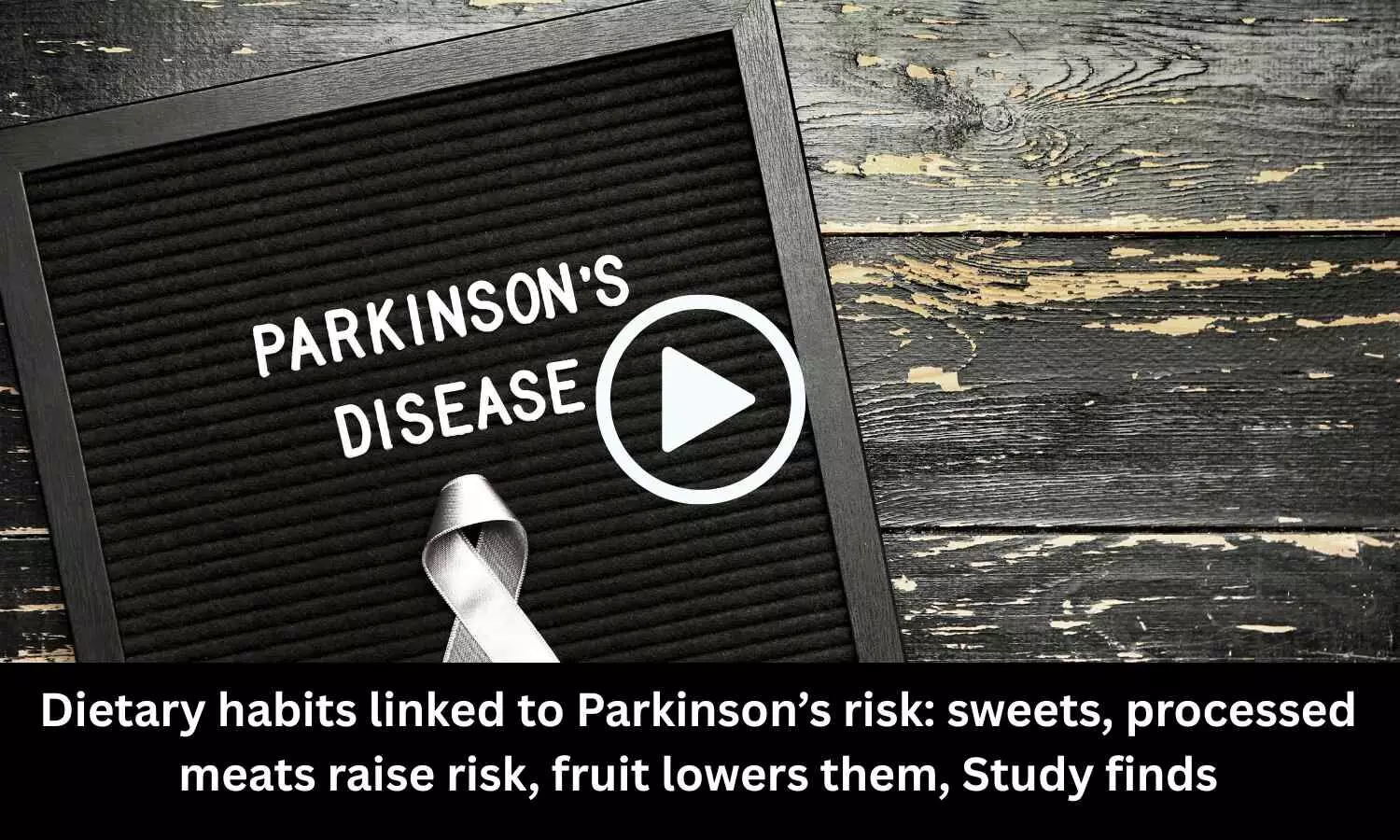Dietary habits linked to Parkinson’s risk: sweets, processed meats raise risk, fruit lowers them, Study finds
- byDoctor News Daily Team
- 31 October, 2025
- 0 Comments
- 0 Mins

Scientists have identified specific dietary patterns that may influence the risk ofParkinson’s disease(PD), aneurodegenerative disorderaffecting movement and quality of life. A recent case-control study published in the Journal of Parkinson’s Disease examined how clusters of foods consumed by Italians relate to PD risk, comparing these dietary factors with established non-dietary contributors. The findings suggest that frequent intake of sweets, red meat, and cured meats increases PD risk, while fruit consumption, particularly citrus, appears protective. Parkinson’s disease has been linked to oxidativestressand inflammation damaging brain neurons, and diet could be a significant modifiable factor. Prior studies focusing on individual foods or predefined diets like Mediterranean or DASH have yielded inconsistent results. This study used data-driven analysis to identify dietary patterns specific to the Italian population that may better reveal associations with PD risk. Researchers conducted a retrospective case-control study with 680 PD patients and 612 matched controls recruited from six Italian neurology centers. Dietary intake was assessed using a 77-item Food Frequency Questionnaire reflecting typical Italian foods consumed before PD symptoms. Non-dietary factors-such as pesticide exposure,smoking, coffee consumption, and family history-were also collected. Principal Component Analysis and Exploratory Factor Analysis identified seven distinct dietary patterns. Logistic regression models adjusted for demographic and environmental factors tested associations between these patterns and PD risk. The analysis showed that higher consumption of sweets (OR 1.20), red meat (OR 1.15), and cured meats (OR 1.32) was significantly associated with greater odds of PD. Conversely, fruit intake lowered PD odds (OR 0.84), with citrus fruits driving this protective effect. Non-dietary factors such as pesticide exposure and family history exerted even stronger risk influences, while coffee and smoking were protective. Physical activity’s protective effects were confounded by correlated unhealthy dietary habits. These results point to practical dietary adjustments-reducing sweets and processed meats while increasing fruit-that may complement other known PD risk reduction strategies. Lead researchers highlighted the need for prospective and diverse-population studies to confirm causality and generalize findings, but the study offers actionable insights for PD prevention through diet modification. REFERENCE:Gigante, A. F., Vitucci, B., Velucci, V., Pellicciari, R., Modugno, N., Pietracupa, S., De Bartolo, M. I., Costanzo, M., Terravecchia, C., Mascia, M. M., Muroni, A., Ercoli, T., Solla, P., Magrinelli, F., Conte, A., Fabbrini, G., Nicoletti, A., Tinazzi, M., Berardelli, A., Defazio, G., & Belvisi, D. (2025). The impact of diet on Parkinson’s disease risk: A data-driven analysis in a large Italian case-control population. Journal of Parkinson’s Disease. DOI: 10.1177/1877718X251388058
Disclaimer: This website is designed for healthcare professionals and serves solely for informational purposes.
The content provided should not be interpreted as medical advice, diagnosis, treatment recommendations, prescriptions, or endorsements of specific medical practices. It is not a replacement for professional medical consultation or the expertise of a licensed healthcare provider.
Given the ever-evolving nature of medical science, we strive to keep our information accurate and up to date. However, we do not guarantee the completeness or accuracy of the content.
If you come across any inconsistencies, please reach out to us at
admin@doctornewsdaily.com.
We do not support or endorse medical opinions, treatments, or recommendations that contradict the advice of qualified healthcare professionals.
By using this website, you agree to our
Terms of Use,
Privacy Policy, and
Advertisement Policy.
For further details, please review our
Full Disclaimer.
Recent News
Scientists discover a hidden antibiotic 100 times...
- 31 October, 2025
Gut microbes may convert fiber into extra calories...
- 31 October, 2025
Who's eligible for faculty appointment? NMC clarif...
- 31 October, 2025
AMU JN Medical College launches code blue emergenc...
- 31 October, 2025
Daily Newsletter
Get all the top stories from Blogs to keep track.


0 Comments
Post a comment
No comments yet. Be the first to comment!